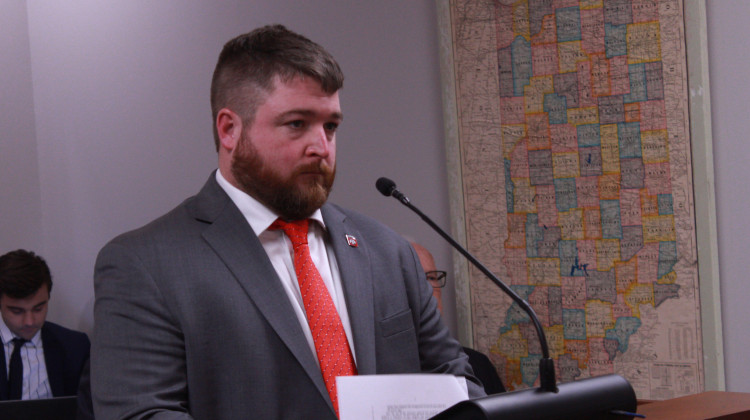
Over the last six Indiana Statehouse election cycles, 2012 through 2022, incumbents have won about 97 percent of the time they appeared on primary and general election ballots.
Brandon Smith/IPB NewsWhy are incumbents — current political officeholders running for reelection — so powerful? It’s a question our audience has been asking.
Over the last six Statehouse election cycles, 2012 through 2022, incumbents have won about 97 percent of the time they appeared on primary and general election ballots.
Laura Wilson, University of Indianapolis associate professor of political science, said there are a few reasons why. Statehouse elections are what are called “low information races” — voters generally don’t know as much about the candidates, so basic name recognition, in which incumbents typically have the advantage, goes a long way.
She said there’s also the financial advantage of incumbency.
“You’re more likely to get funding because, as an incumbent, you’re a proven winner,” Wilson said. “And with incumbency advantage — and funders know this — they want to support someone who they think is going to be elected in office, not someone who they think will probably lose.”
READ MORE: Perception of bipartisanship in Indiana legislature often doesn't match reality
Join the conversation and sign up for the Indiana Two-Way. Text "Indiana" to 73224. Your comments and questions in response to our weekly text help us find the answers you need on statewide issues, including our project Civically, Indiana.
There’s also the competitiveness issue. Between 2012 and 2022, in 29 percent of races that featured a Statehouse incumbent, lawmakers didn’t face a challenge in both the primary and general elections.
Wilson said that’s because of the political balance of the districts and because state lawmaker, as a part time position, isn’t necessarily an attractive office to seek.
Brandon is our Statehouse bureau chief. Contact him at bsmith@ipbs.org or follow him on Twitter at @brandonjsmith5.
9(MDAyMzk1MzA4MDE2MjY3OTY1MjM5ZDJjYQ000))
 DONATE
DONATE






 Support WFYI. We can't do it without you.
Support WFYI. We can't do it without you.